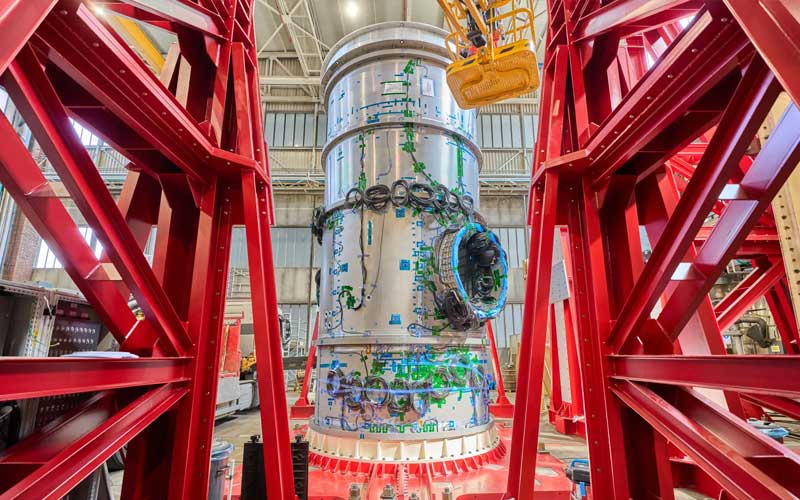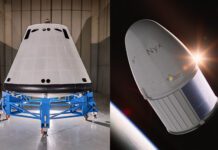
Thales Alenia Space has successfully completed a static load testing campaign for the Gateway space station’s Habitation and Logistics Outpost (HALO) module. When the HALO module is launched along with the Power and Propulsion Element (PPE), the pair will form the initial building blocks of NASA’s lunar Gateway space station.
Northrop Grumman was selected by NASA in July 2019 to build and deliver the HALO module for Gateway. In December 2020, the company subcontracted Thales Alenia Space to design, manufacture, and test the module’s primary structure (pressurized element). The contract represented an extension of a long-standing partnership with Thales, with the company having supplied pressurized modules for the Northrop Grumman Cygnus cargo spacecraft since 2013.
To build HALO, Thales has utilized the flight-proven base of Cygnus with the same three-metre diameter and a one-metre extension, bringing the total length to seven metres. With an Orion spacecraft docked, it will be capable of sustaining a crew of four astronauts for up to 30 days.
On 3 October, NASA announced that Thales Alenia Space had passed a key testing milestone in the development of the HALO space station module with the completion of static load testing. This phase of testing includes subjecting the structure to the forces it will encounter in deep space. The testing was conducted by Thales Alenia Space at its facilities in Turin, Italy.
Static load testing is one of several major environmental stress tests HALO will be subjected to before delivery. Once those tests are complete, the pressurized element will be shipped to the Northrop Grumman facility in Gilbert, Arizona, where final outfitting will be completed to prepare it for launch.
The HALO and PPE Gateway space station modules will be launched aboard a SpaceX Falcon Heavy rocket. The launch is currently slated to take place in late 2027.




